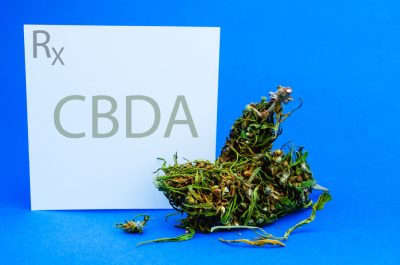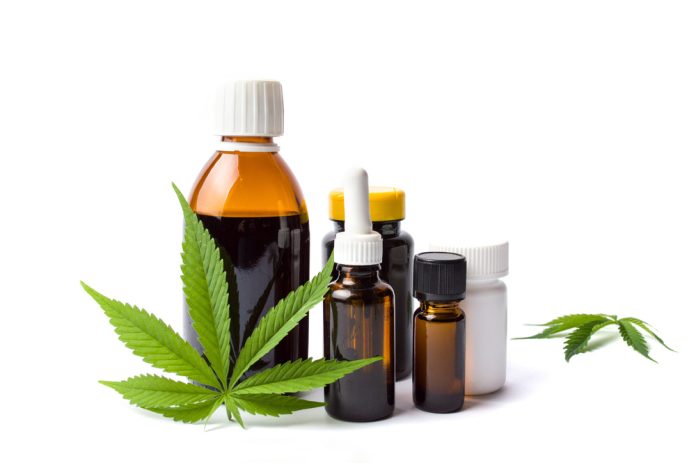The legalization of cannabis has driven more researchers to discover its full potential. It has hundreds of compounds or cannabinoids that affect the human body in various ways. Some of the most prevalent are THC or tetrahydrocannabinol and CBD or cannabidiol.
The most popular cannabis compound used for its numerous health benefits is CBD. However, its precursor, CBDA or cannabidiolic acid, shows promising impacts on various health issues. Here’s what you need to know about CBDA and why it may be better than CBD.
What Is Cannabidiolic Acid (CBDA)?
Cannabidiolic acid is the unprocessed form of cannabidiol. This compound is the raw form of CBD before thermal decarboxylation, a process of applying heat to activate the cannabinoids. These two compounds have similar structures but affect the body in distinctive ways. You may check out this blog from Woven Earth to dig deeper into their differences.
Some research exhibits that CBDA can be more potent than CBD. However, stabilizing it upon exposure to heat and light is challenging. Experts are still developing products with CBDA alone, but some full-spectrum CBD oils, tinctures, and edibles may have traces of it.
Can CBDA Make You Feel High?
CBDA is a non-psychoactive compound, so it won’t make you feel high. Experts develop CBDA products for those who want to experience the health benefits of cannabis without smoking its raw flowers or taking edibles with THC. It’s also safe for regular consumption without the risk of overdose. However, it is best to take it in small doses, especially for new consumers.
What Are The Benefits Of CBDA?
Although studies about CBDA aren’t as abundant as CBD and THC, earlier findings show its significant therapeutic potential. Researchers are developing this compound as an alternative to medications with harmful side effects. Here are some of its possible benefits:
- Reduces Pain And Inflammation: Researchers are looking into CBDA as a potential alternative to nonsteroidal anti-inflammatory drugs (NSAIDS). Unlike over-the-counter NSAIDS, CBDA poses less risk of long-term side effects and allergic reactions. CBDA may help reduce inflammation by inhibiting the COX-2 enzyme, which is associated with pain mediation due to injury or infection.
- Relieves Nausea: CBDA has antiemetic properties, which may help manage nausea and vomiting. According to some experts, it can help bring relief to cancer patients undergoing chemotherapy. It also shows promising effects in preventing anticipatory nausea or vomiting triggered by specific stimuli like smells and sounds.
- Treats Anxiety: Experts are looking into using CBDA to treat anxiety disorders. Most cannabinoids can make one feel calmer and induce deep relaxation, particularly CBDA and CBD. These cannabinoids can also help manage panic attacks and may lower heart rate, preventing palpitations and shortness of breath.
- Stabilizes Mood: CBDA interacts with serotonin receptors, which may help stabilize mood. It shows similar effects as existing anti-depressant medicines. Some experts may suggest taking CBDA as a supplementary treatment, which may help manage depression and bipolar disorder.
- Improves Sleep: CBDA’s relaxing effect may help those struggling with insomnia due to stress and anxiety. It may help one fall asleep faster and encourage uninterrupted, quality sleep. Relief from pain may also help patients get a good rest for faster recovery from injury or illness.
- Lessen Frequency of Seizures: The most popular cannabinoid with an anticonvulsant effect is CBD. However, new studies prove that CBDA is more effective in reducing the frequency of seizures among those struggling with epilepsy. It also takes smaller doses to see positive results.
- Suppresses Cancer Cells: Initial studies show CBDA’s ability to prevent the spread of specific breast cancer cells. Although further research is still needed, experts believe its potential to suppress cancer.
These potential health benefits of CBDA discovered in early studies encourage experts to gather more data to develop effective and safe products and medications. Preliminary researches also exhibit that CBDA can be more efficient than CBD in treating various physiological and psychological conditions.
What Makes CBDA Better Than CBD?

Despite the numerous similarities between these cannabinoids regarding chemical structure, effects, and benefits, some factors show that CBDA may be better than CBD. One of these is its stronger potency.
CBDA is more potent than CBD, which means smaller doses can be much more effective. Although it’s nearly impossible to experience an overdose of cannabinoids, there are still risks. By taking small yet potent amounts, consumers can enjoy the health benefits with reduced risk of side effects.
Another factor to consider is CBDA’s anti-inflammatory benefits. Its molecular structure is similar to NSAIDs and targets the same receptors responsible for inflammation. However, it doesn’t show harmful effects on the gastrointestinal tract like ibuprofen and aspirin. Although CBD may help with pain and inflammation, CBDA’s potency may provide longer-lasting relief and faster recovery.
Furthermore, initial trials show that specific serotonin receptors respond more effectively to CBDA, unveiling its high potential for treating anxiety and nausea.
Conclusion
CBDA is one of the naturally occurring compounds in cannabis that offer solutions for various health problems. Although further studies have yet to prove its efficiency, experts believe in its potential as a treatment option that’s much more effective than CBD.



















